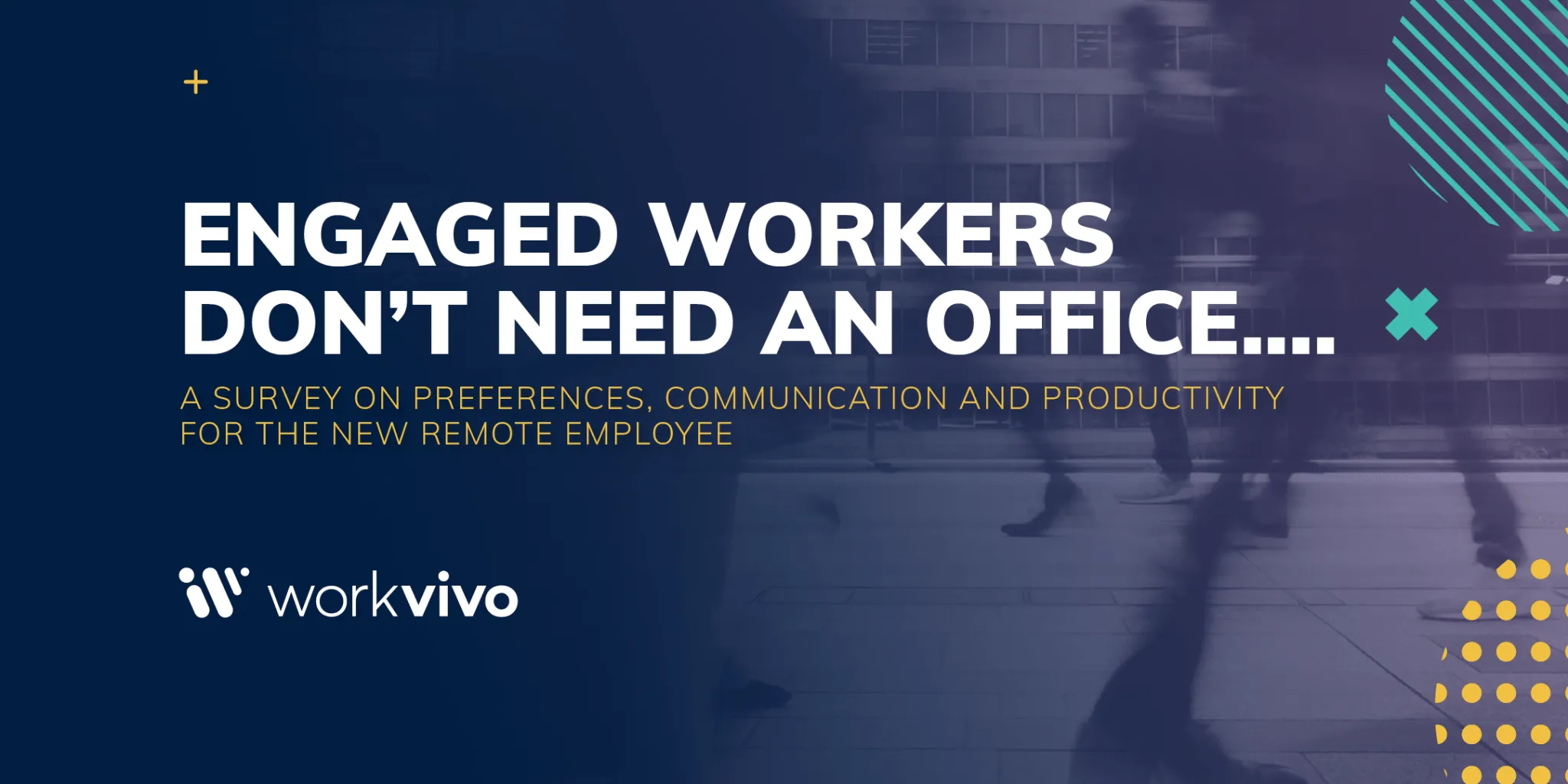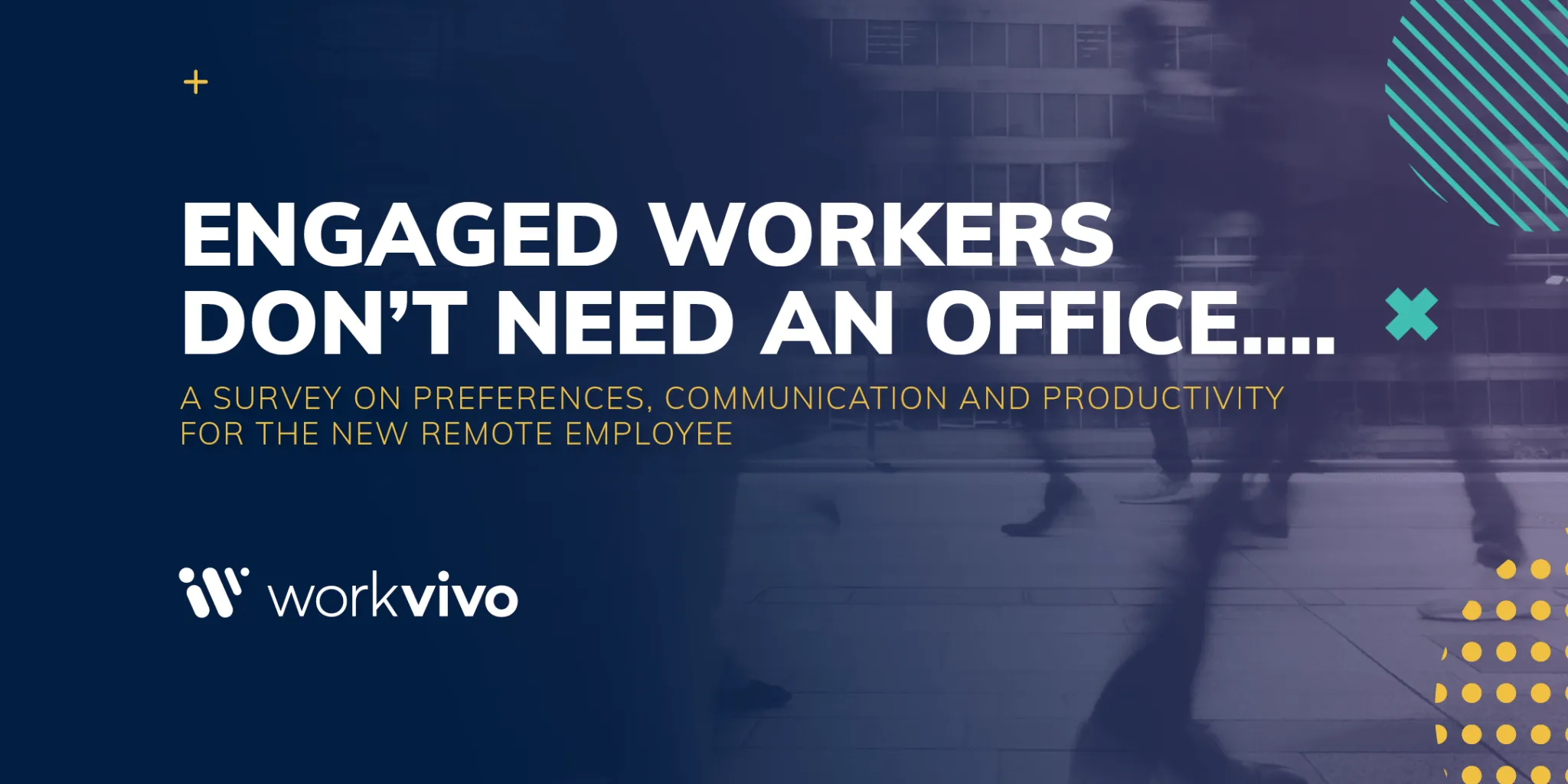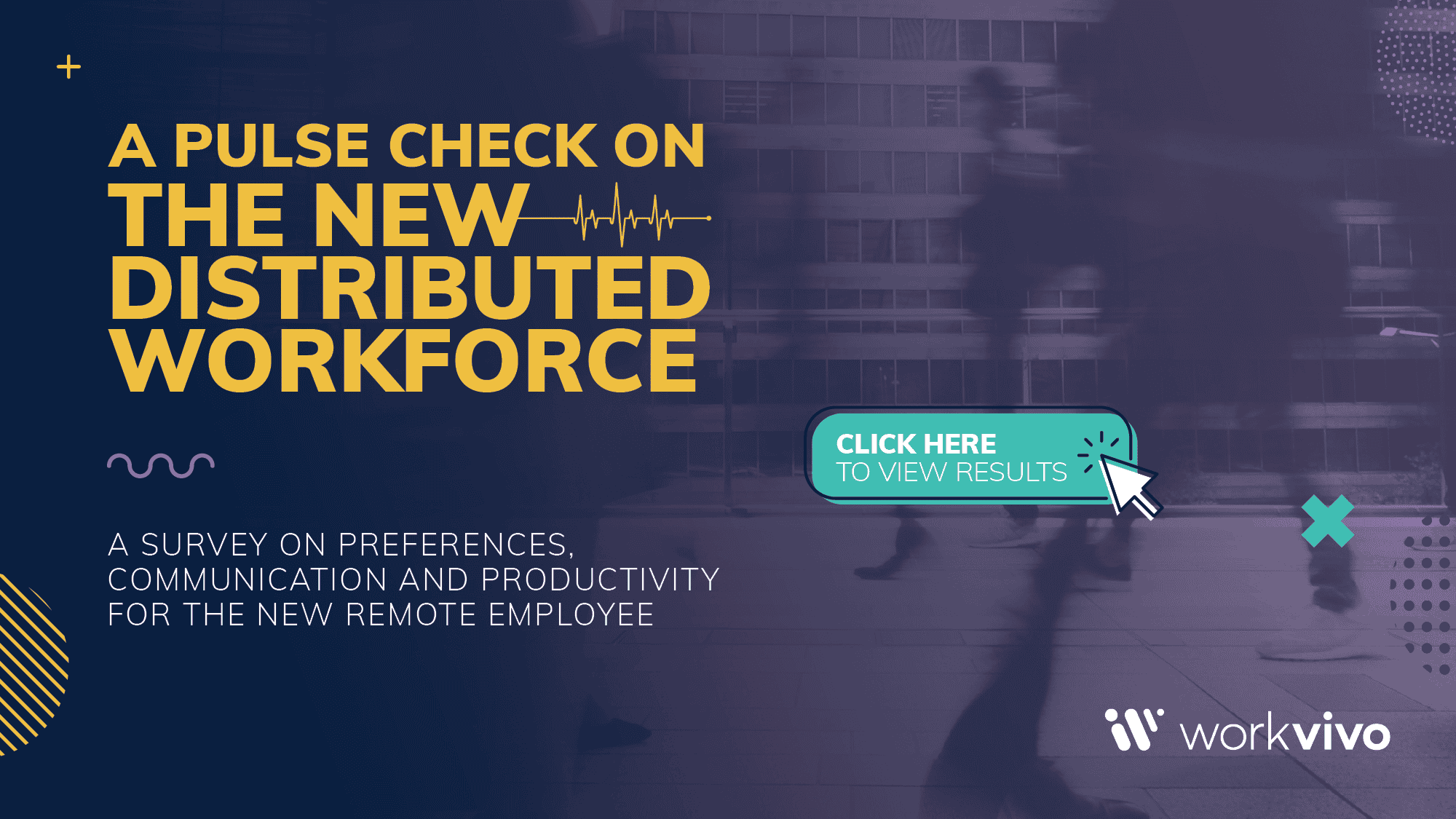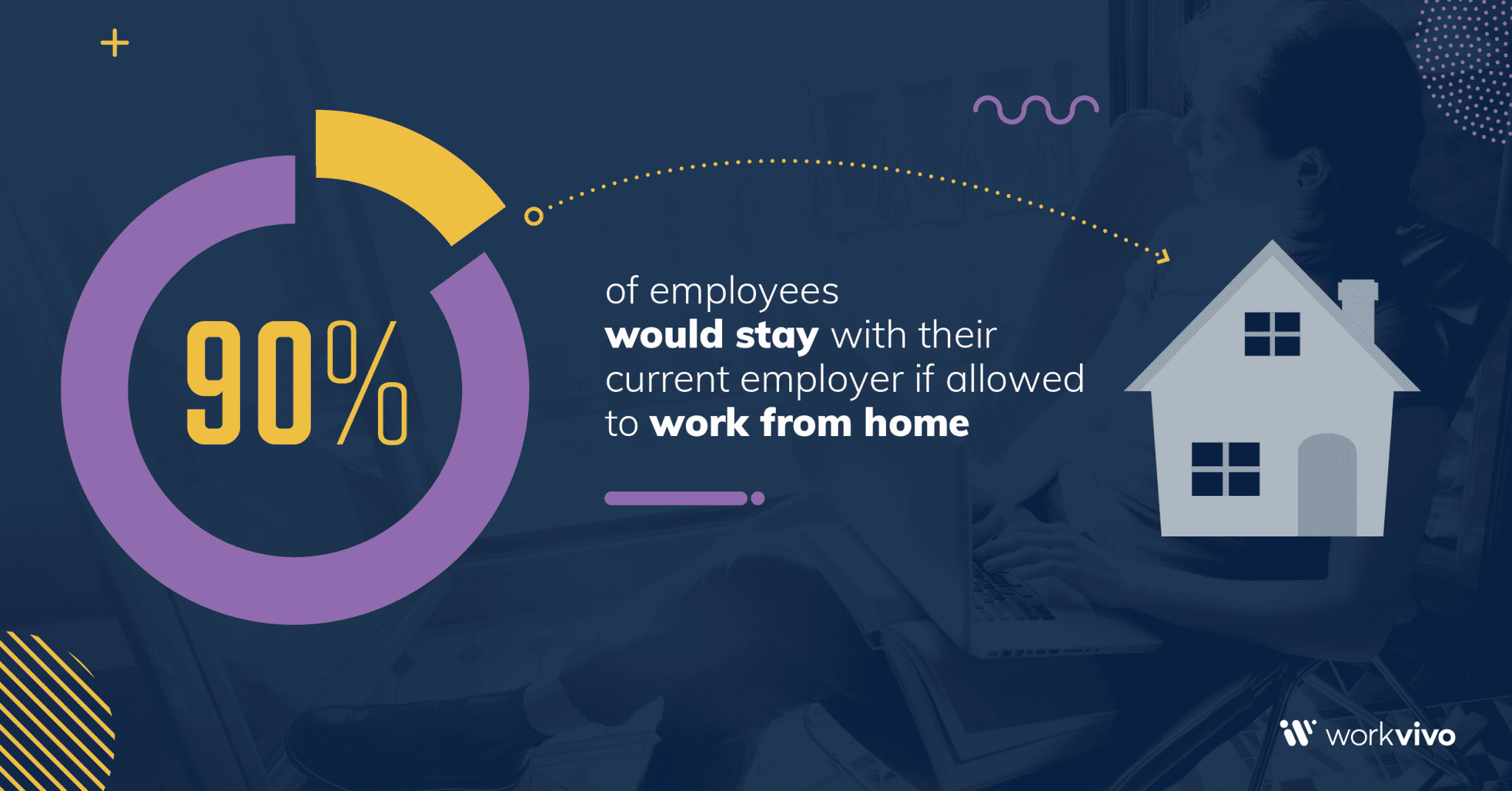September 1 2020


The results of Workvivo’s employee engagement survey confirm the remote working experiment unleashed by COVID-19 has largely been successful.
Since the start of the work-from-home wave, respondents agreed that productivity has increased and internal communications have improved. And there is a strong preference to continue with remote working.
The survey of 1,000 US and UK workers provides a pulse check on employees’ experiences of home working. And it sheds light on how employers have managed the transition.
Furthermore, the results provide valuable insights into the future of work.
Keep scrolling to read the main findings from the survey. You can check out the full survey results by clicking on the button below.

Employee Experiences Working From Home
- The vast majority of participants (84.9%) feel more positive about working from home since the start of the pandemic.
- When asked if they would like to work from home permanently, 52.2% said yes, while a further 36.1% would prefer a mix of home and office.
- When it comes to what participants enjoy the most about home working, the top answer is no commuting (49.3%). Also crucial to respondents is enjoying extra time in the mornings (23.9%).
- An overwhelming 90.0% of participants said that they are more likely to stay longer with employers that offer home working.
The results clearly show that employees are very positive about home working. In fact, most would like it to continue at least some of the time even after the pandemic ends.

Internal Communications
- A majority of respondents (50.9%) feel that they are communicating more with colleagues while working from home.
- And 63.2% agree that their employer is communicating more.
- A significant number of respondents (75.7%) believe that employers are putting more effort into communicating.
According to the survey, internal communications are working well. Employers are putting more time and effort into their communications. And peer-to-peer communications also seem to be on the up. This is a pleasing result as 34.0% of respondents said they would miss meeting with colleagues the most if permanently working remotely.
With distributed teams featuring strongly in new ways of working, employers need to ensure they promote employee communications.
Productivity
- At 70.5%, most respondents feel that they are more productive working from home.
This significant finding echoes the results of similar surveys. A two-year longitudinal study from Stanford University, for example, discovered that productivity increases among remote workers. And the researchers put this increase down to more focus and fewer distractions.
Implications For Employers And The Future Of Work
The survey shows that the remote working experiment has mostly been a success for both employees and employers. So much so that workers are increasingly likely to expect it and may even demand it.
Flexibility will be crucial for employers looking to attract and retain the best talent.
Furthermore, the experiment may well have exposed weaknesses in your current comms solutions. If distributed teams become the norm as seems possible, then communication and engagement will be critical.
Many have discovered, for example, that platforms like email and Slack are not designed to engage employees, especially in relation to company goals and culture.
There are a number of emerging technologies that progressive businesses are using effectively to support the collaboration, communication and engagement needed for sustained remote working. Workvivo is one of these technologies.
Make sure your business doesn’t get left behind. Use your experiences of remote working plus the evidence from surveys like this one to review and update your systems.
Workvivo’s survey involved 1,000 employees who began working from home due to the Covid-19 pandemic. Located in the USA and UK, respondents were aged between 23 and 54.
